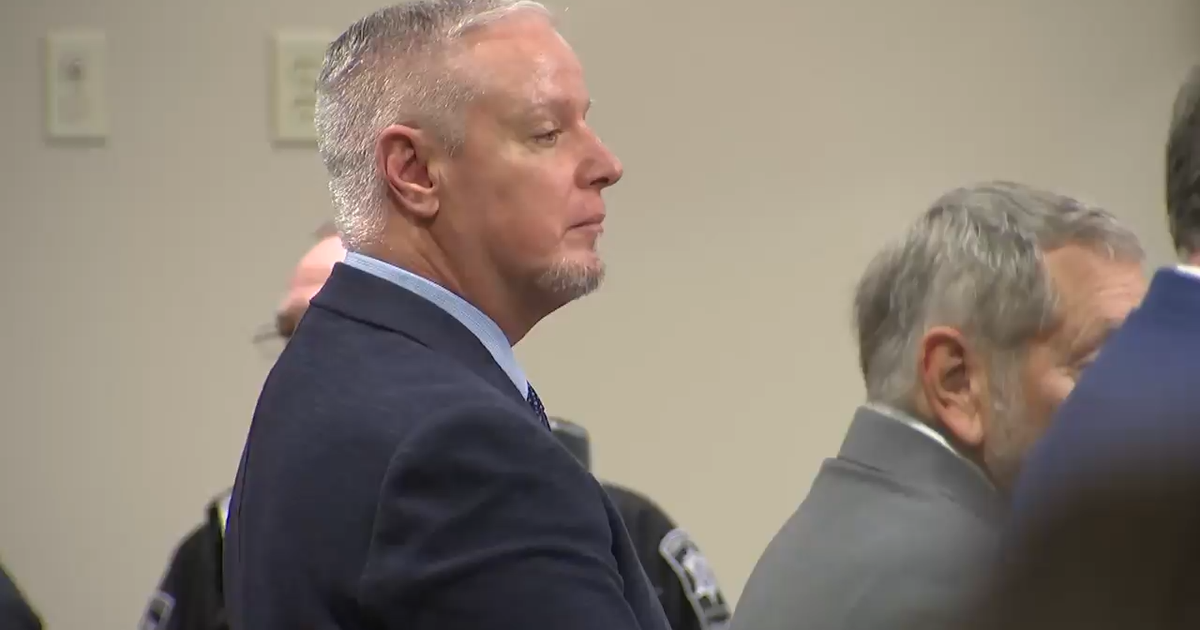Rhode Island, Wells Fargo Charged With Fraud For 38 Studios Deal
PROVIDENCE, R.I. (AP) — The U.S. Securities and Exchange Commission on Monday charged Rhode Island's economic development agency and Wells Fargo with defrauding investors in the state's disastrous $75 million deal with 38 Studios, the failed video game company started by former Red Sox pitcher Curt Schilling.
The civil complaint, filed in U.S. District Court in Providence, accuses the Rhode Island Commerce Corp. and Wells Fargo Securities of making materially misleading statements when they sold the bonds used to fund the deal.
Schilling moved his company from Massachusetts to Rhode Island in 2010, after the agency agreed to give it a $75 million loan guarantee. The deal was financed through bonds offered to investors. Less than two years later, 38 Studios ran out of money and closed its doors, filing for bankruptcy.
Schilling is not accused of wrongdoing in the SEC action, but he and others, including Wells Fargo, are being sued by the economic development agency in state court. That case has so far netted nearly $17 million in settlements. Schilling has blamed state officials for failing to support his business venture.
A spokesman for Wells Fargo disputed the SEC's allegations and said the company will respond in court.
Also named in the SEC complaint are former agency officials Keith Stokes and Michael Saul, and Peter Cannava, a Wells Fargo banker on the transaction. Stokes and Saul agreed to settle the SEC charges without admitting or denying the allegations and must each pay a $25,000 penalty.
The SEC complaint says the officials knew that 38 Studios needed at least $75 million to bring its game, code-named "Project Copernicus," to completion. But under the deal with the state, the company would receive only $50 million of proceeds from the bond offering. Despite that, the bond offering documents failed to disclose the funding gap, the complaint alleges.
"38 Studios' funding gap was known at the time the Bond Placement Memo was sent to investors. It was not speculative. It was an existing risk that should have been disclosed to potential investors in the offering," the complaint says.
Wells Fargo also had a "dual role" in the offering, the SEC alleged, representing both the state agency and 38 Studios, a potential conflict of interest it didn't disclose to investors.
Cannava's lawyer, Brian Kelly, disputed the SEC's contention that Cannava was the lead banker on the matter and said he would fight the action vigorously.
"The SEC is trying to scapegoat a mid-level banker instead of focusing on the mistakes of Rhode Island politicians," he said.
Stokes' lawyer, Scott Morvillo, said the settlement represents what his client hopes is the final chapter in the matter.
Other representatives for those named in the action didn't immediately comment.
In a separate but related action Monday, the SEC announced it settled charges with the bond offering's financial adviser, First Southwest Company, which agreed to pay $192,400 and didn't admit or deny wrongdoing. First Southwest is among those being sued in the state court lawsuit. The company's spokeswoman, Patti Doyle, characterized the SEC case as a "very minor administrative matter" and said it shouldn't affect the state lawsuit.
Democratic Gov. Gina Raimondo said she wasn't sure how the SEC action would affect the state lawsuit.
"It's obviously disappointing," Raimondo said. "I was opposed to this deal from the very beginning and every day since. We need to get to the bottom of it and this is part of that process. But beyond that, we've got to move on."
The deal was struck under former Gov. Donald Carcieri, a Republican.
Democratic House Speaker Nicholas Mattiello said it was disturbing that the economic development agency "failed to protect the best interests of the state's taxpayers in this transaction."
A state lawmaker who has led oversight hearings into the 38 Studios deal said she was pleased to hear about the charges.
"It can only make us stronger as a state," said Democratic Rep. Karen MacBeth.
In the future, she said, "people that may consider doing something like this may think twice."
Associated Press writer Matt O'Brien contributed to this report.
Copyright 2016 The Associated Press. All rights reserved. This material may not be published, broadcast, rewritten or redistributed.







